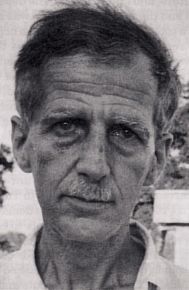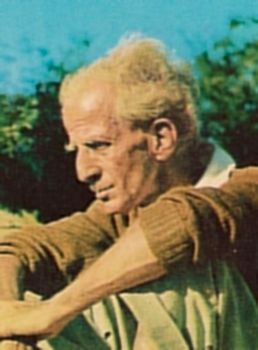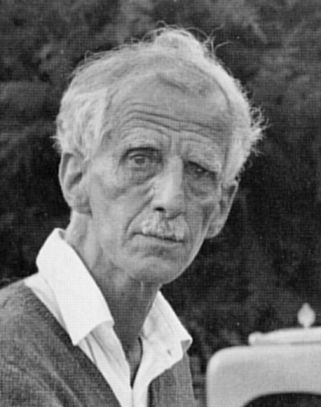View entry
Name: IONIDES, Constantine John Philip



Nee: of Greek descent although the family had long been British
Birth Date: 17 Jan 1901 Steyning, Sussex
Death Date: 22 Sep 1968 Nairobi
First Date: 1925 on way home on leave from Army in India
Profession: Snake man and hunter
Area: Tanganyika
Author: 'A Hunter's Story'
Book Reference: Ionides, Snake, Eden, Colonial, Kingsley-Heath, Chandler
War Service: Army service India 1922-26; KAR 1926-29; Military service 1941-43
School: Copthorne Prep School, Rugby and RMC Sandhurst
General Information:
Ionides - Poaching elephant with Ken McDougall - "a very fine hunter" in Tanganyika and the Congo. Also tried white hunting but he wasn't good. He had the wrong temperament. Then joined Tanganyika Game Dept. in 1933 and NEVER poached elephant again. Ionides killed some 1200 elephant (rogues and raiders) as a Game Ranger. He was once "beaten up" by an elephant and lived to tell the tale.
Snake - His father was a surgeon whose family came to England from Constantinople in 1840. His mother's family were strongly connected with the banking firm of Ralli Brothers. ... After Rugby he went to Sandhurst and then to the 24th Regt. of Foot or South Wales Borderers in India. ...... In 1960 he still wears a 'double terai' hat. It belonged to a DC who went to Africa in 1923 and Ionides got it in 1940 and has worn it ever since. The outer crown has gone, the inner one is patched. He has drunk from it, cooked in it, and used it to catch innumerable snakes with. ..…..
Snake - His father was a surgeon whose family came to England from Constantinople in 1840. His mother's family were strongly connected with the banking firm of Ralli Brothers. ... After Rugby he went to Sandhurst and then to the 24th Regt. of Foot or South Wales Borderers in India. ...... In 1960 he still wears a 'double terai' hat. It belonged to a DC who went to Africa in 1923 and Ionides got it in 1940 and has worn it ever since. The outer crown has gone, the inner one is patched. He has drunk from it, cooked in it, and used it to catch innumerable snakes with. ..…..
He threw his watch away in 1927, and has never carried one since.
Kingsley-Heath - Game warden and herpetologist extraordinaire. Big-game hunter, mentor of Brian Nicholson. One of the finest naturalists in any of the game departments of East Africa.
Eden Nicholson assisted Ionides as a game ranger and took over from him in 1955. He buried Ionides's ashes in a copper urn in the heart of the Selous on Nandanga mountain after Ionides had died in Nairobi Hospital.'
Chandler - C.J.P. Ionides, a strongly individualistic fifth-generation Englishman of Greek descent, was universally known as "Iodine" from the time he first went to public school. Wherever he went, his fellows seemed to consider him a foreigner. After a checkered [sic] school career, Ionides went into the army in India as a lieutenant in the South Wales Borderers. He was unconventional, getting into trouble over a pet bear and horrifying his senior officers by preferring to shoot pigs rather than stick them. In 1925 he wangled a transfer to the KAR (his superior officers were not sorry to see him go), frankly because he felt the hunting opportunities would be better. ……………… [ivory hunting in Belgian Congo] …………..
He went into the white-hunter business with a partner, a skilled but alcoholic professional named McDougall. McDougall blew the company profits on women and booze, and the partnership folded. …………. [more poaching to pay off debts then assistant game ranger for the Tanganyika Game Dept.] ……
Two factors set Ionides apart. One was his eccentricity. He was kind of a nut, hard on others and Spartan on himself. He actively cultivated a reputation for wizardry and magic among the Africans in his district and was not above treating them harshly, even brutally if he felt it necessary. On one occasion he had all the males of a village flogged for one infraction or another. The Africans generally responded with respect, if not affection. …………..
The second distinguishing factor was his work with snakes. Ionides bacame a recognized expert on herpetology, discovering new species and profitably supplying the museums of the world with dangerous reptiles. Legend has it that he was not above shipping a live mamba in a packing box without any precautions or warning about the contents. He was often in trouble with the postal authorities. Ionides spent much of WW2 in Somalia, helping to keep the peace among the more remote and wild tribes. Once again his simple "my way or the whip" style paid dividends. After the war he continued his snake collecting and also set out on some famous collecting expeditions for various museums, supplying them with mountain gorilla, addax, bongo, and other rare trophies. He was always the consummate hunter. ………………….. His health failed in the 1960s, and poor circulation in his legs restricted his ability to walk. ………………. Ionides died in 1968 after an operation that amputated both legs. He is buried on a hillside in the Selous Game Reserve, which is just where Ionides would want to spend eternity.
Colonial - Professional Hunting Congo and Tanganyika 1929-33; Game Ranger Tanganyika 1933; Senior 1949
Gazette 28 Feb 1969 probate
